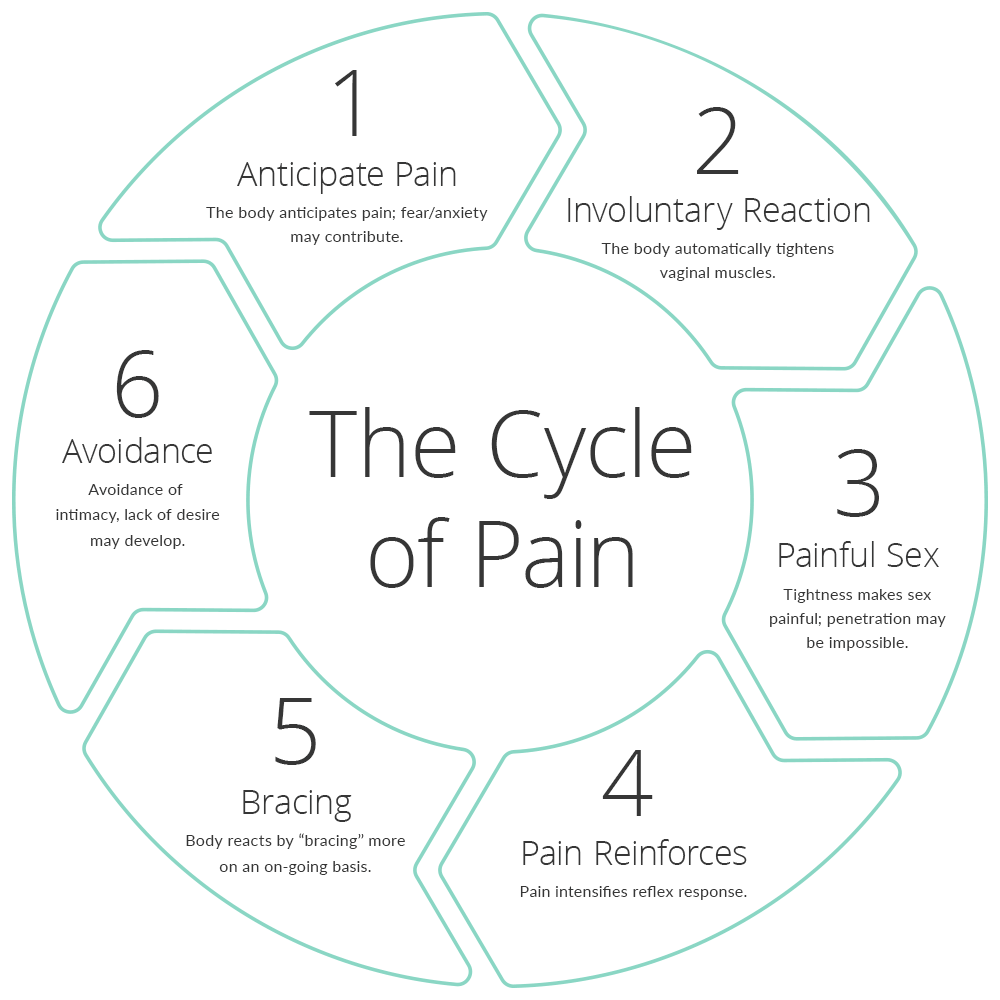Vaginismus: The Painful Health Issue That Women Are Ashamed to Talk About

By:
It seems like there's a lot of pressure on couples to have good sex. So what happens when sex isn't fun and is actually painful?
That's the question some women ask themselves. The sad thing is they may be afraid to ask it out loud. But the truth is they may have a very treatable condition called vaginismus, which affects two out of every 1,000 women, according to Vaginismus.com. Too many of these women are suffering in silence, which is doubly sad, given how treatable the condition is.
What is vaginismus?
Vaginismus is a condition that "causes involuntarily spasms of the muscles surrounding the vagina," which can make penetration extremely painful, according to Self. The condition can make it painful for women even when they try to insert a tampon.
What does it feel like?
Common words associated with the condition are "tightness," "burning," and "stinging," Vaginismus reported. Licensed clinical social worker Ross Lynn Tabisel described the resulting sensation as "hitting a brick wall": "If penetration is possible, it will be associated with pain, chafing, burning, and the urgency to urinate," Tabisel told SELF. Vaginismus makes penetration either impossible or very painful, even during a routine pap smear.
"First off, it hurts," said blogger Keeks on La Matadora, where she writes about living with ("and in spite of") vaginismus. "You try to breathe through it. Then it really, really hurts. It feels a bit like you’re being ripped in half, right down the middle."
Why does vaginismus happen?
Vaginismus is caused by a mental block rather than a physical one, doctors and researchers have found. "The main causes for primary vaginismus include fear of pain, fear of the unknown ('How will it feel inside my vagina?'), religious inhibitions, perceiving the vagina as being too fragile and sensitive, past experiences with discomfort (e.g. infection, vaginal dryness, rough sex), misconceptions about sex and sexuality, and the inability to say no to unwanted penetration," Tabisel told SELF. That fear begins a "cycle of pain":
 Vaginismus/Vaginismus.com - vaginismus.com
Vaginismus/Vaginismus.com - vaginismus.com
But that's not to say that a woman is just imagining the pain. Whatever emotional or mental factors are at play, they still trigger a very real tightening of the pelvic floor, and it's involuntary. Telling someone with vaginismus "It's all in your head" is not helpful.
Sadly, it isn't uncommon for women who were sexually abused to find they have vaginismus as a consequence. "When I was 22, I went out with a jerk who forcibly raped me at the end of night," Desiree told Vaginismus. She added: "But three months ago I met someone different; a wonderful man that I think I may be in love with. We tried to have sex a few times, but I was surprised to find out that it just wouldn’t work. I don’t get it! Sex was fine before I was attacked, but now I’ve met someone really special, and I can’t seem to do it."
Why don't women talk about it?
Two reasons: shame and the inability to easily diagnose the condition. Because there's still a stigma involving anything to do with vaginas and women's health, many women don't feel comfortable seeking help. "[It] can be very isolating, making it difficult for many women with signs or symptoms of vaginismus to speak to anyone about their concerns — including their doctor," physician Abigail Cutler told SELF.
There aren't any definitive medical tests for the condition, Cutler said: "It’s also what we call a 'diagnosis of exclusion,' meaning all other causes of pain with sex must be ruled out before a diagnosis of vaginismus can be applied."
"It took me three tries to get diagnosed with vaginismus," Keeks blogged. She described her encounter with the second doctor, who seemed baffled by her pain:
"I explained to the doctor about the difficulties my boyfriend and I had trying to have sex and waited for a reply. The doctor, to my immense surprise, looked, ... well, a little bit embarrassed. She asked first if my boyfriend had a particularly large penis. I said he had, yes (smugface), but that it had happened with a previous boyfriend who had an equally lovely but more modestly proportioned appendage and so didn't think that necessarily had anything to do with it. She suggested then ('off the record') that I 'try getting drunk' in order to be more relaxed the next time we had sex.
"I'll be honest, I was lost for words."
What is the treatment for vaginismus?
Let's get some good news up in here: "Vaginismus is considered one of the most successfully treatable female sexual disorders. Many studies have shown treatment success rates approaching nearly 100 percent," Vaginismus reported.
The website recommended a 10 Step Process to recovery. It involves analyzing past sexual experiences (to determine if trauma is a factor), retraining the pelvis floor, and using dilators ("basically medical dildos," Self helpfully explained). In the case of "secondary vaginismus," which is vaginismus that is a result of surgery, menopause, or cancer treatment, medications may be enough.
Vaginismus isn't anything to be ashamed of.
If painful sex is happening to you, it isn't something that you have to accept. You owe yourself a happy and healthy sex life. No shame!
